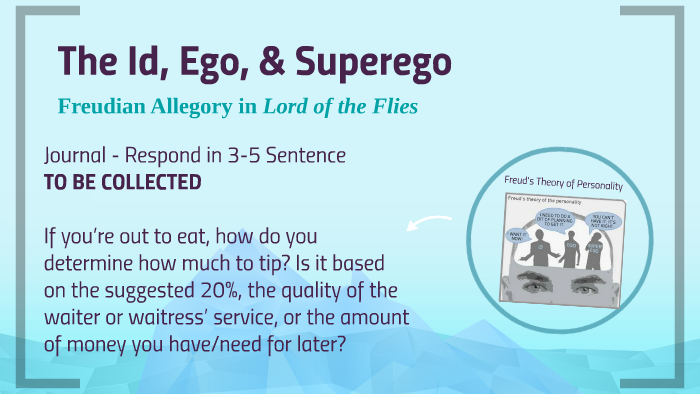

The superego is what tells us to do what is right and to avoid doing what is wrong. The superego develops in childhood as we learn about right and wrong from our parents and other authority figures. Superego is the moral part of the personality. This can often lead to conflict with the ego because the things that the id wants are often not realistic or possible. The id does not care about reality or logic, it only cares about getting what it wants. This means that the id wants whatever will bring it pleasure.

The id is governed by the pleasure principle. Id is the primal, instinctual part of the personality. The ego is often in conflict with the id because the id often wants things that are not possible or realistic. It works to satisfy the needs of the id while also taking into account the reality of the outside world. The ego is the part of the personality that is realistic and logical. What role does each play in our personality development?Įgo is the part of the personality that mediates between the id and the outside world. These values and beliefs help the ego to control the id’s impulses and make choices that are in line with the individual’s moral code. The ego also develops a set of values and beliefs based on the standards of morality internalized from the superego. The ego mediates between the id and superego, and uses defense mechanisms to protect the individual from anxiety-producing impulses from the id. The interaction between the ego, id, and superego is an important part of Freud’s theory, as it explains how the three parts of the psyche work together to produce human behavior.

The superego is the part of the psyche that internalizes society’s standards of morality and develops a sense of guilt when those standards are not met. The id is the part of the psyche that is governed by the pleasure principle, and is the source of all psychic energy. The ego is the part of the psyche that mediates between the id and the superego, and is responsible for reality testing and planning. The ego, id, and superego are three distinct parts of the psyche in Sigmund Freud’s psychoanalytic theory. How do the ego, id, and superego interact with each other? How can an understanding of these three concepts help us lead more fulfilling lives?.What are some common myths about the ego, id, and superego?.How can an understanding of the ego, id, and superego help us deal with mental health issues?.



 0 kommentar(er)
0 kommentar(er)
